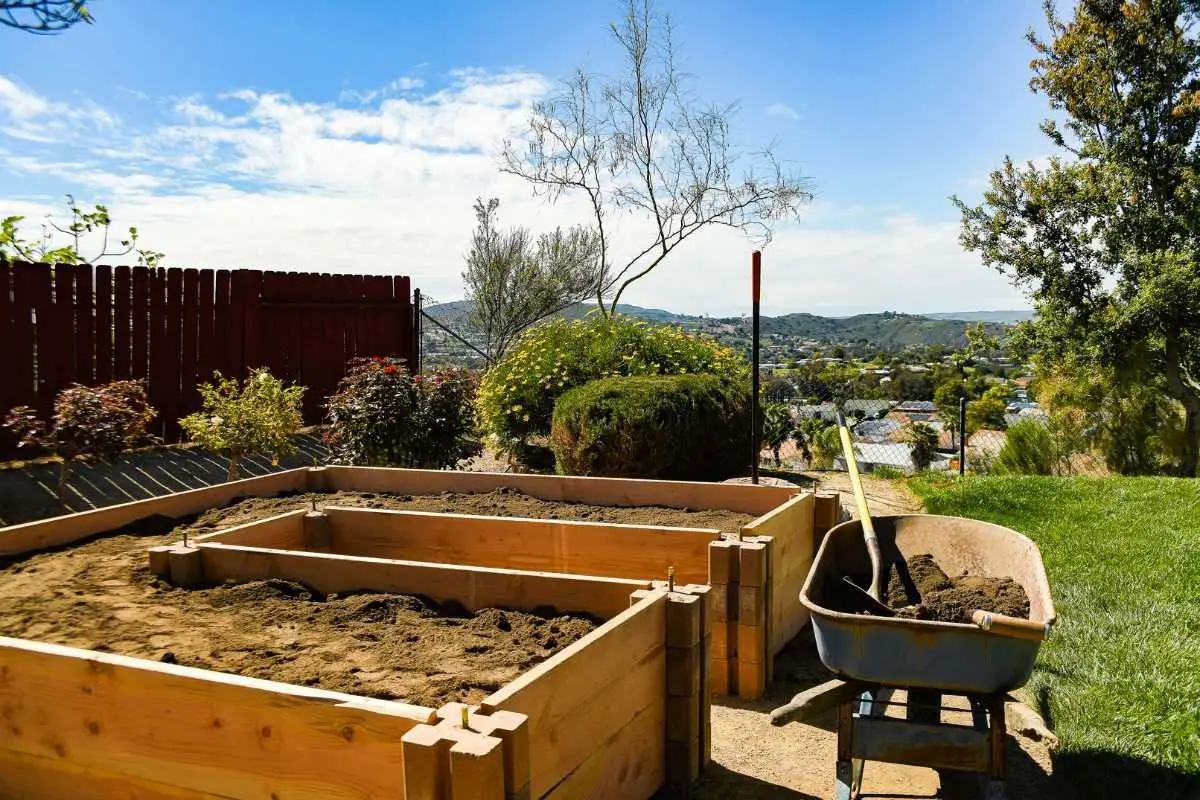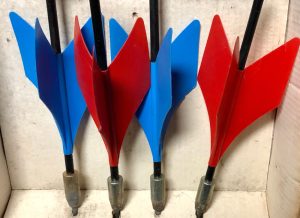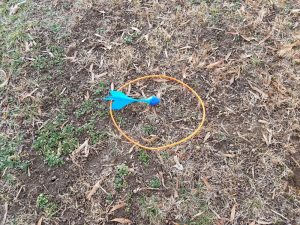Until 2012, it was illegal to collect rainwater in the state of California (and may have been illegal to collect in the rest of America, too). The main reason for banning the collection of rainwater is that it would interfere with the ecosystem.
Corporations, especially, would trap millions of gallons of rainwater for their plants and company systems, restricting water from flowing into the environment in a natural way.
With the enactment of the Rainwater Capture Act in 2012, the restrictions against collecting rainwater loosened. Under the new laws, the people of California are no longer required to have a permit to harvest rainwater, provided they adhere to the guidelines put in place.
In this article, I will highlight the water collecting restrictions in California that are currently in place.
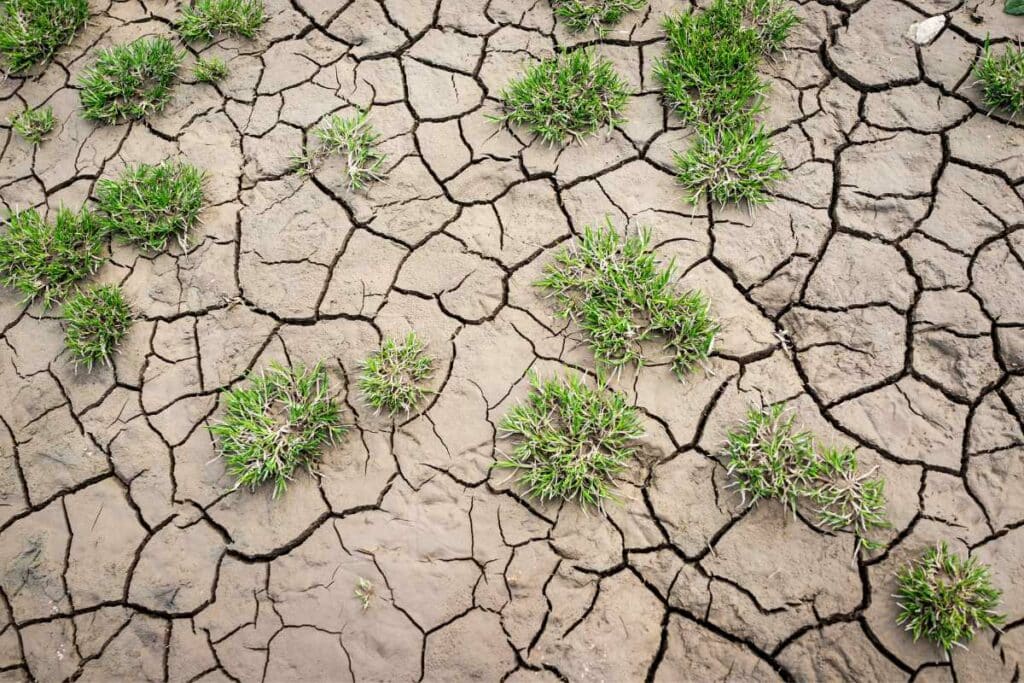
The Reason for The Rainwater Capture Act
The Rainwater Capture Act, or Assembly Bill 1750, was enacted in 2012, as stated above. The enactment was necessary because California is generally dry, as it does not rain often.
Water shortages are a common problem. Therefore, collecting rainwater serves as a remedy and a source of security during the days when water is scarce.
When the Act was enacted, a period of severe drought had hit California, which went on to last for four years. The state was so dry that wildfires became quite rampant.
The situation was so dire that the usage of water had to be cut down by 25%, people had to substitute lush green lawns for drought-resistant plants. Restaurants even stopped offering free drinking water unless someone asked.
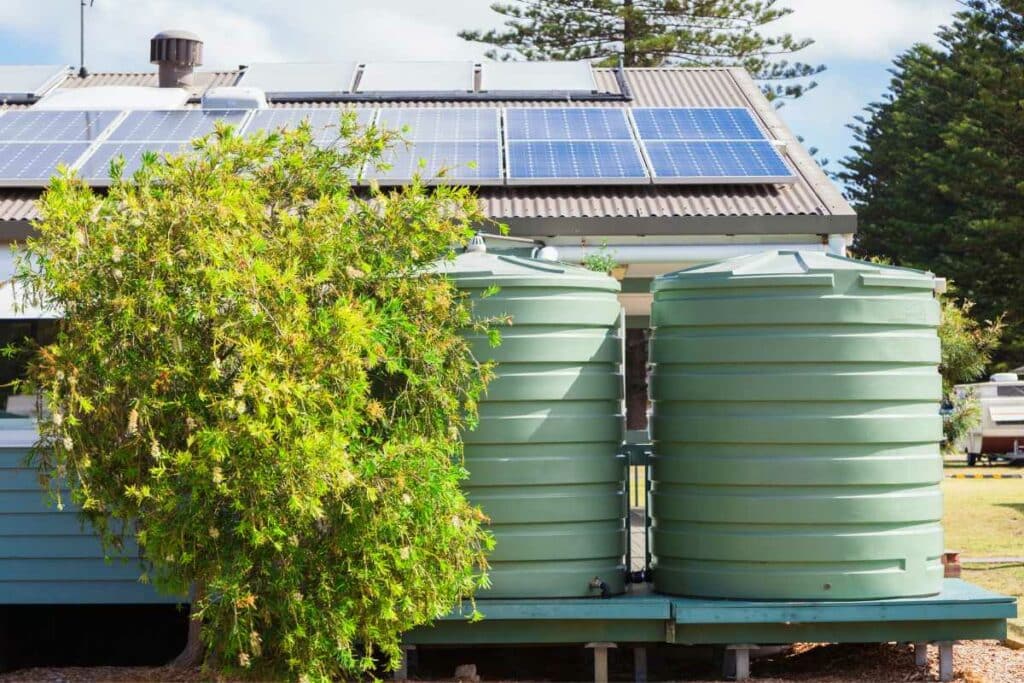
According to NASA satellite data, California needed 11 trillion gallons of water to balance out the water shortage. It was at this time that water collection restrictions were loosened, allowing individuals and corporations to collect rainwater by introducing the Rainwater Capture Act.
However, the collection of rainwater was only as legal as the people abided by the guidelines of the California State Water Resources Control Board (CSWRCB).
Guidelines of the ACT/ CSWRCB
As per the Act, it is acceptable for homeowners to collect rainwater through natural pathways as long as it is for non-potable uses around the home. Since rooftops are not considered natural water channels, they do not apply to Water Code.
Non-potable uses of rainwater include the following:
- Irrigating gardens and lawns. For this to be acceptable, the water-collection structure should be built by a licensed landscape constructor.
- For pools, ponds, and fountains. Just as with the gardens and lawns, collecting rainwater for pools and fountains is acceptable, provided the structure has been constructed by a landscape contractor.
- Drinking water for farm animals and pets.
- Domestic activities such as washing the car and general cleaning.
- The water can also be used in place of a fire extinguisher to put down wildfires using a garden hose.
The California State Water Resources Control Board advises against using rainwater for drinking as it may be contaminated and, as a result, cause infections. Drinking water should come from municipal or other approved sources such as freshwater wells.
If you have to drink rainwater, it has to go through a thorough sterilization process. In addition, homeowners are expected to keep water-collecting barrels clean enough to keep mosquitoes and other pests away.
Modern rain barrels have screens that keep mosquitoes away. You can also use vegetable oil and dunks for the same effect.
Current Water – Collecting Restrictions in California
The Rainwater Capture Act of 2012 legalized water collection in California, such that you would not need a permit to collect rainwater.
Homeowners are especially free to collect as much rainwater as they need, provided the CSWRCB approves of the collection methods and structures.
However, homeowners may still face restrictions from the Homeowners Association (HOA), but these are mostly based on aesthetics and inconvenience in the neighborhood.
For instance, if your barrel is noisy or it is visible from the street. Still, these restrictions have been loosening over time.
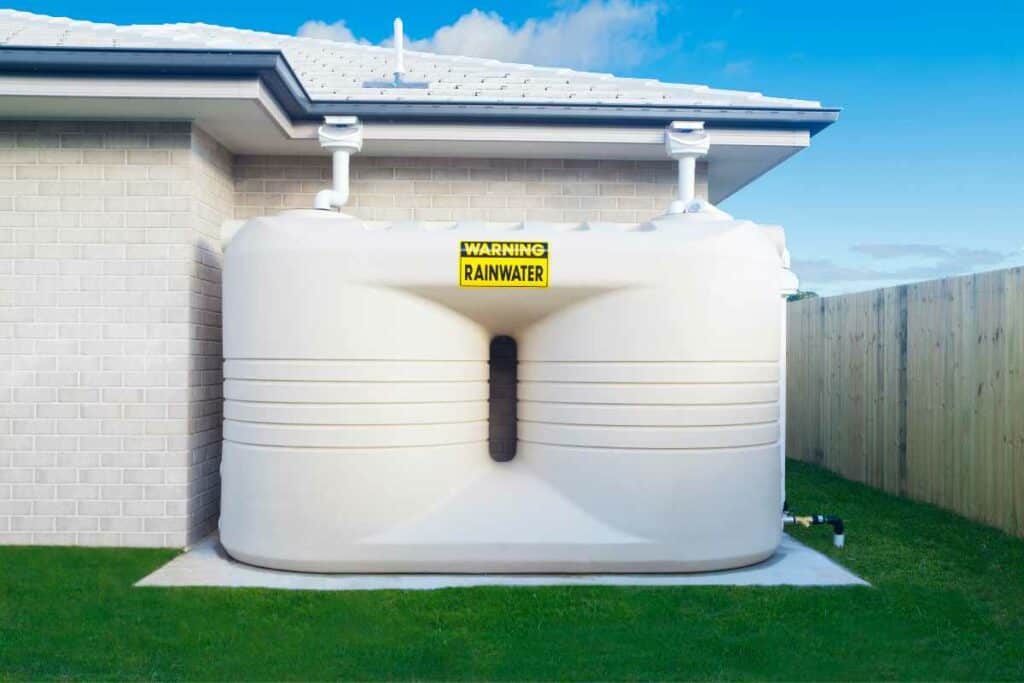
In most cases, corporates or companies need permits before they are allowed by the state to collect rainwater, especially if they need a lot of water for their plants.
The state must supervise and ensure that the company’s water collection does not lead to the detriment of the environment. You will also need a license if you are harvesting water for a pond or irrigation system.
Why Should You Collect Rainwater in California?
California is a relatively dry place that goes long periods without rain. The main reason why you should collect rainwater in this state is to save for the dry times.
However, having water security is not the only reason that people are encouraged to collect water in this state. Other reasons why one should recollect rainwater in California include the following:
- It lowers your water bill. You won’t have to pay to water your lawn and keep your garden green and lush.
- To control floods. When it rains too much, flooding may occur. So, it makes more sense to collect that water and put it to good use.
- To reduce pollution from contaminated rainwater. The first ¾ inch of rainwater is usually toxic. When left to flow into the earth, it contaminates the soil and water bodies it flows into. Collecting these first few drops ensure that only clean water flows into rivers, lakes, and oceans.
- You can store water for drinking when the state is hit by drought. Only you will have to sterilize it first so that you don’t get water-borne infections.
Do You Get Paid to Collect Rainwater in California?
In cities such as San Diego, people get paid for having barrels in their homes. It is like an incentive to encourage more people to collect rainwater.
In San Diego, you will get paid up to $0.75 for every gallon of water you collect. On average, households in San Diego collect about 515 gallons of water, which will earn you about 385 bucks.
In some areas of California, you will get free barrels for participating in water collection programs. It is also some form of incentive. Alternatively, some dealerships, such as the Blue Barrel Company, offer refunds when you buy specified barrels.
For instance, when you buy from this company, you will be refunded if you get the 20-barrel system.
Still on incentives, voters in California passed Proposition 72 to promote water conservation in the state. As per the proposition, homeowners that harvest rainwater enjoy tax benefits.
For instance, equipment and systems used to harvest rainwater are exempted from property tax assessments. Note that the exemptions apply to systems constructed before or after the first of January 2019.
Final Words
California is prone to long periods of drought and frequent wildfires. This means that water shortage is rampant in the state. Before 2012, it was illegal to harvest rainwater in California, but the restrictions have been loosening as time goes by.
The Rainwater Capture Act made rendered it legal for people to collect rainwater without requiring a permit.
If anything, in some cities like San Diego, homeowners are getting paid for harvesting rainwater. Still, the water should be collected responsibly to avoid harming the environment.
